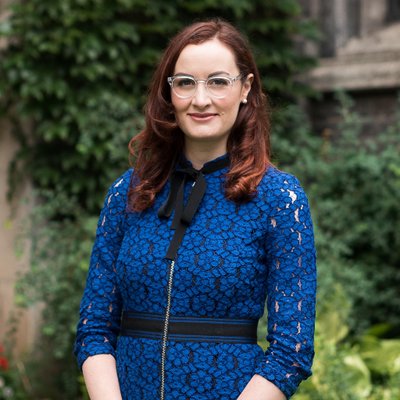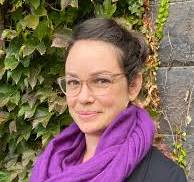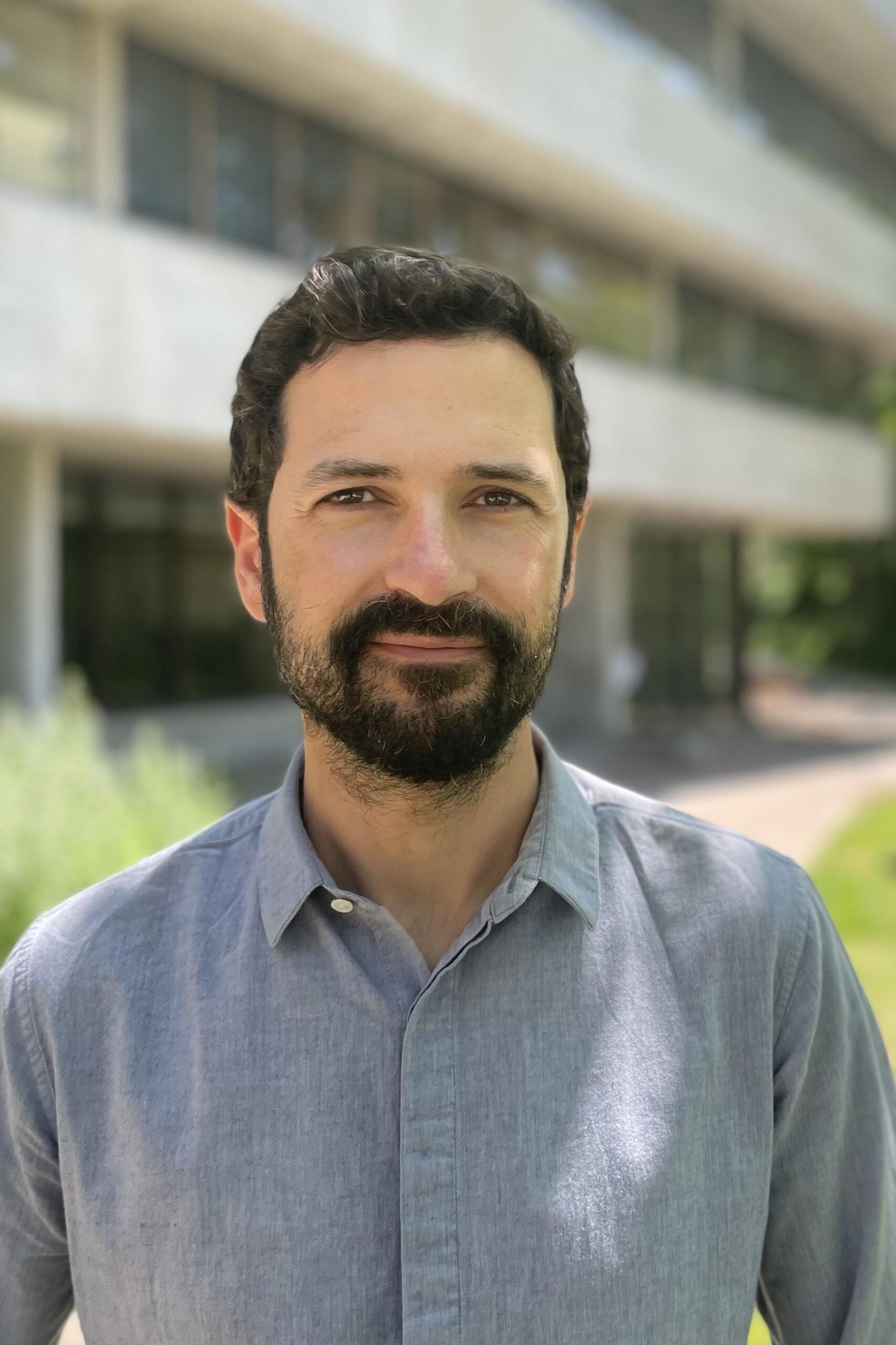2025 Catalyst and Synthesis Grant Projects
SDGs@UofT is pleased to announce the recipients of the 2025 Catalyst and Synthesis Grants.
This catalyst and synthesis grant program is a key activity to providing support for research and innovation at the University of Toronto.
List of the Awarded Projects
Equal Care For All: Policy Solutions to Address Inequities in Access and Quality in the Care Economy

Principal Investigator: Sarah Kaplan
Co-Investigator: Elizabeth Duey, Michal Perlman, Linda White
The goal of this project is to generate and mobilize research and policy insights for more equitable, sustainable, and high-quality early childhood education and care (ECEC) and other forms of care systems globally. Through convening researchers and experts from around the world, the project will synthesize knowledge on two key questions: which social investment policies will foster sustainable, high-quality ECEC and other forms of care; and how can these policies reduce inequalities in access ("Matthew effects")? The project addresses the research theme of “Designing and evaluating interventions and instruments for sustainability” by exploring and targeting interventions that will produce better services for families in need of care, particularly marginalized families, while also improving conditions for care workers. These insights will then be mobilized to reach policymakers and practitioners, facilitating improved care systems. The project will also expand the Care Collaboratory, a multi-disciplinary research group at University of Toronto, to international scholars. Because high-quality and equitable care systems can lead to multiple economic and social benefits, this project targets an original nexus area of education, gender equality, health and well-being, decent work, and economic growth.
Famine Mitigation in Climate Change-Affected Conflict Zones

Principal Investigator: Aisha Ahmad
This study investigates the effectiveness of community-led famine mitigation strategies in Somalia, with a special focus on the urban cultivation of Moringa Oleifera trees by Somali citizens between 2012 and 2022. Moringa Oleifera is a unique, drought-resistant tree that is food-producing under hot and dry conditions and is often used as an emergency food source. Moringa Oleifera cultivation in Somalia can be traced back to the 2011 famine that claimed the lives of 260,000 people. In response to that crisis, in 2012 communities of Internally Displaced Persons (IDPs) started to cultivate Moringa Oleifera as an emergency food source, and this cultivation systematically increased over the next decade. Importantly, in 2022-23, the United Nations warned that Somalia was facing its worst drought in history, and observers expected hundreds of thousands of deaths. Yet, a famine did not occur. Why was famine averted in 2022-23, when the drought was even worse than in 2011? Why were some Somali communities more resilient than others, despite facing similar environmental and political conditions, and similar levels of international aid? How did different community-led famine mitigation strategies affect food security outcomes? This study bridges sociological, biological, and public health research methods to create new knowledge on famine and food security. In so doing, directly supports several UN Sustainable Development Goals, most notably SDG 2: Zero Hunger.
Co-designing extreme heat resilience: A socio-technical retrofit strategy for low-income housing

Principal Investigator: Marianne Touchie
Co-Investigator: Laura Tozer
Housing conditions are an important factor in protecting residents during increasingly frequent and severe extreme heat events yet some of the most vulnerable communities reside in buildings without mechanical cooling. Installing this cooling equipment is technically and financially challenging for building owners, rendering change slow despite the urgent need to protect these residents from extreme heat. The objective of this project is to engage with low-income communities to 1) understand how they cope with extreme heat and 2) co-create low-carbon, low-cost, socio-technical solutions to reduce the impacts of overheating. The proposed project catalyzes a new interdisciplinary research collaboration to address this heat-housing-health nexus through both social and technical solutions to establish transition pathways. The outcomes will include an equity-focused community plan which outlines a combination of technical solutions (e.g. light-touch retrofits such as solar shading, fans etc.) and social solutions (e.g. community-building initiatives) that work in concert to protect residents from the effects of overheating. The project will culminate in the development of a new multi-million-dollar grant application to fund the implementation of the pilot community plan, evaluate the effectiveness over a multi-year period and develop a community toolkit for broader implementation across the country.
Autonomous, scalable and self-healing wireless sensor networks for environmental monitoring and just urban agriculture

Principal Investigator: Scott MacIvor
Co-Investigator: Jorg Liebeherr
Cities face extreme heat and poor air quality, challenges worsened by climate change that disproportionately impact vulnerable populations, including women and gender-diverse individuals who often rely more on local food systems. These conditions additionally affect pollinating insects that are essential for food security. Informed by a OneHealth approach, our project develops an autonomous, scalable, and self-healing sensor network for environmental monitoring to support urban agriculture and pollinator habitat initiatives led by local communities.
We are a collaborative research team with combining expertise in biodiversity conservation and low-power in-situ environmental sensing. Our project will test this architecture and its data transmissibility to advance urban food security while addressing Sustainable Development Goals 2, 3, 11, and 15, and fostering a just society.
We will deploy a self-organizing LoRa (Long Range) mesh network scalable to 100 nodes and covering over 100 km². Equipped with temperature, humidity, pollution, and camera sensors, the network will collect and report data to a cloud database. Paired with research on pollination services, this data will measure the cooling and pollution-buffering capacities of urban greening. Insights will guide the equitable allocation of vegetation to optimize cooling benefits for pollinator diversity and food production, ensuring solutions address the unique needs of women and gender-diverse communities.
Higher Education and the SDGs: A Systematic Review of the Role of Higher Education in Achieving the SDGs

Principal Investigator: Elizabeth Buckner
Co-Investigator: Rie Kijima
Quality education is both a Sustainable Development Goal (SDG 4.0) and a means to achieving the broader SDG Agenda. Indeed, educational opportunity and equity have been consistently linked to both individual and national development outcomes, and prior work has connected Goal 4.0 (Quality Education) to progress on all other SDGs. However, little research has distinguished between primary and secondary schooling and higher education. Unlike other levels of schooling, universities are sites of research that drive innovation while also being the most unequal level of education, with potentially more private benefits than public externalities. Recognizing the distinctive nature of higher education, this project will carry out a systematic literature review on the link between higher education and sustainable development. It will document the specific mechanisms through which higher education is linked to each of the 17 SDGs, highlighting the roles that research, teaching, and community engagement play. We will pay particular attention to the role of inequalities in moderating the impact of higher education on the SDGs whenever clear in the literature. Findings will provide new theorizations for the link between higher education and the SDGs and will be shared with academic leaders and policymakers.
Mobilizing equity and relational indicators with community partners to measure and improve community wellbeing

Principal Investigator: Laura C. Rosella
Co-Investigator: Felix Cheung
Collaborative efforts between communities and policymakers are essential for strengthening community wellbeing. However, existing instruments often fail to address the equitable distribution of community assets or the sustainability of resources over time. To bridge these gaps, this project engages domain experts, community organizations, and municipal partners in co-developing applications of equity-based and relational wellbeing indicators to support local decision-making in Ontario municipalities. We will conduct an environmental scan and convene a workshop to critically assess current wellbeing practices and explore how tailored indicators and tools can enhance ongoing efforts, fostering more resilient, equitable, and sustainable communities in these Canadian cities. We will synthesize all feedback from the workshop into a final report and manuscript, highlighting current practices to better integrate tools and indicators into ongoing initiatives. We will build strong collaborations and partnerships that can broadly support the Sustainable Development Goals of good health and wellbeing, reduced inequalities, and creating sustainable cities and communities.
Redefining Value through an intersectional lens for Person-Centred and Community-Relevant Systems in the Sustainable Development Goal Era and Beyond

Principal Investigator: Beverley Essue
Co-Investigator: Carmen Logie
This project aims to catalyze a paradigm shift for inclusion and equity goals in health systems by emphasizing the value of investments through an intersectional and equity-serving lens. By integrating gender, race and other considerations, and critiquing the systems and processes that can marginalize individuals on these grounds, health systems can improve health outcomes while advancing gender equality and reducing inequalities. This approach is critical for achieving the UN Sustainable Development Goals (SDGs), 3 (Good Health), 5 (Gender Equality) and 10 (Reduced Inequality), ensuring that no one is left behind in the pursuit of health and well-being. This research has two key objectives: 1) to synthesize evidence on existing methods used to account for intersectionality in economic evaluations of health system interventions, specifically focusing on gender and race, and to assess their impact on value assessments and 2) to gather perspectives from community representatives on the current approaches and outcomes for addressing intersectionality and equity, and to identify opportunities for further development and application of equity-relevant outcomes in health system evaluations. The research at this nexus seeks to advance a more inclusive framework for resource allocation that can promotes equity across diverse populations, ultimately contributing to a more just and effective health system.
Precarity in the City: Environmental Hazards and Gig Labour in Urban India

Principal Investigator: Priyank Chandra
Co-Investigator: Nidhi Subramanyam
Gig workers, including delivery drivers and ridesourcing operators, are a growing yet precarious segment of the urban workforce, often employed informally with minimal protections. They face disproportionate exposure to environmental hazards such as air pollution, heat waves, and flooding, compounded by socio-economic vulnerabilities related to caste, gender, and migration status. Despite these risks, the intersection of environmental hazards and labour precarity remains underexplored.
This project adopts a mixed methods Participatory Action Research (PAR) approach to investigate how environmental hazards affect gig workers in the Indian city of New Delhi. Using bottom-up participatory mapping, workers will identify hazardous geographies along their routes, which will be compared with official environmental data and infrastructure plans to assess mitigation gaps. Semi-structured interviews and participatory design workshops will further explore workers’ perceptions of risks and co-create solutions for workplace safety, risk communication, and fair compensation.
The study is at the nexus of SDGs 8, 10, 11, and 13, advancing labour rights, environmental justice, and urban resilience. By engaging gig workers, the project will generate actionable recommendations to mitigate risks, improve safety, and foster sustainable urban development while contributing to scholarly discourse on labour and environmental justice
Juntos y Positivos (Positively Together): Exploring how Gay and Bisexual Venezuelan Migrant Men Living with HIV Navigating Antiretroviral Access in Colombia

Principal Investigator: Dr. Amaya Perez-Brumer
Co-Investigator: Michael Widener
Migration in Latin America has doubled from 7 million in 1990 to nearly 15 million in 2020, driven largely by Venezuela’s crisis, which displaced over 7.7 million people. Colombia hosts over 2.8 million Venezuelans, many facing health disparities. Urban-residing gay and bisexual Venezuelan migrant men (GBVMM) face unique vulnerabilities, including an HIV prevalence of 11%, compared to 1.1% among other Venezuelan migrants. Our ongoing work with Venezuelan sex workers in Medellín, Colombia, highlights how xenophobia and homophobia intersect with urban geographies, creating significant barriers to accessing the HIV continuum of care for migrants. However, little research has examined the strategies used by gay and bisexual Venezuelan migrant men (GBVMM) living with HIV to navigate these challenges. Juntos y Positivos (Positively Together) addresses this gap by (1) Qualitatively examining how GBVMM living with HIV (n= 20) navigate coordinated geographies to access HIV care and (2) Conducting three workshops (n=10/workshop) to co-create digital advocacy tools in partnership with community, activists and policymakers. Aligned with SDG 3 (Good Health and Well-Being), SDG 10 (Reduced Inequalities), and SDG 11 (Sustainable Cities), this project builds on a collaboration between the University of Toronto, Universidad de Antioquia, and the HIV community organization, Mas Que Tres Letras.
Cycling Economies: Mapping Livelihoods and Economic Worlds around the Bicycle in Bogotá

Principal Investigator: Sergio Montero
Co-Investigator: Fernando Calderón Figueroa, Paola Castañeda, Alvaro Rodriguez Valencia
While plenty of existing research emphasizes cycling’s recreational, transport, and public health benefits, its economic and gendered dimensions remain underexplored. This project investigates how cycling can contribute to building sustainable and inclusive cities by shaping diverse local economies and enhancing public space accessibility, with a focus on advancing gender equity. Bogotá, Colombia—a global leader in cycling innovation and host to the world’s largest Open Street event, the Ciclovía—provides a compelling case study, particularly through its policies encouraging cycling among women and children. An interdisciplinary team from UofT and Universidad de los Andes (Colombia) will use field observations, focus groups, and surveys to examine how cycling fosters diverse economies and improves women’s access to the city. Three UTSC undergraduate students and two UofT graduate students will participate in a summer research course in Bogotá in June 2025, gaining research experience alongside the research team. Aligned with SDGs 5 (Gender Equality), 8 (Decent Work), 11 (Sustainable Cities), and 13 (Climate Action), this project integrates a comprehensive scoping review of existing research and policy evaluations in Spanish, alongside their translation, fieldwork findings, and academic publications. The outcomes aim to equip policymakers, community organizations, academics and educators both in the South and the North with new perspectives to harness cycling’s potential for advancing urban equity and sustainability.
Upstream on the river of chronic disease prevention: Leveraging the education system toward nutrition and food literacy to build health literacy across generation – A Barbados-Canada Pilot

Principal Investigator: Leanne R. De Souza-Kenney
Co-Investigator: Sanghyun (Kris) Kim
Nutrition & Food Education is not required curriculum in K-12 education in most countries. Noncommunicable diseases (NCDs) like type 2 diabetes & its precursors, can be prevented/delayed with
lifestyle changes & building health literacy earlier in life. In fact, NCDs)are diagnosed later in life despite risk factors manifesting decades earlier. Already burdened healthcare systems contend with increased NCDs in children. In Barbados, prevalence of childhood overweight (30%) & obesity (14%) exceeds global rates. It is critical that all children & their families have access to sound knowledge on fundamental topics like how to access & prepare food, & the impact of food environments on health. New teachers must learn how to teach these concepts & integrate them into various subjects across K-12. Here, we use an upstream, systemic approach toward primary & secondary NCD prevention by leveraging the education system to build nutrition & food literacy earlier in life. Educators from Canada & Barbados will partner with nonprofits, scientists, policymakers, parents & students to co-create a teacher’s college certification in nutrition & food literacy. The unique feature of one teachers’ college in Barbados allows us to co-create & pilot a teachers’ college certificate training program in Nutrition & Food Literacy.
Balancing Empowerment and Accountability: Rethinking Policy and Equity in Decentralized Water Initiatives

Principal Investigator: Amy Bilton
Co-Investigator: Nicolas Spence
This knowledge synthesis project addresses critical gaps in decentralized water technologies, with a focus on rainwater harvesting systems, by exploring three pivotal questions: How can centralized and decentralized infrastructure be effectively integrated to enhance resilience? What policy frameworks are necessary to ensure the safe, equitable, and sustainable implementation of these technologies? And how should the role of the state be reimagined to balance community empowerment with accountability? Using a rigorous systematic knowledge synthesis approach, the project integrates systematic reviews, interdisciplinary collaboration, stakeholder engagement, and empirical data analysis to generate actionable insights. Key outputs include peer-reviewed publications, policy briefs, and a publicly accessible knowledge hub co-developed with Isla Urbana. This hub will empower grassroots organizations, policymakers, and educators by providing data, case studies, and practical tools for sustainable water management while fostering constructive dialogue on decentralized water governance. By bridging technical, social, and governance dimensions, the project contributes to sustainable and equitable water management solutions globally, aligning with multiple SDGs, including clean water (SDG 6), reduced inequalities (SDG 10), and sustainable cities (SDG 11), while enhancing resilience to climate change impacts.
